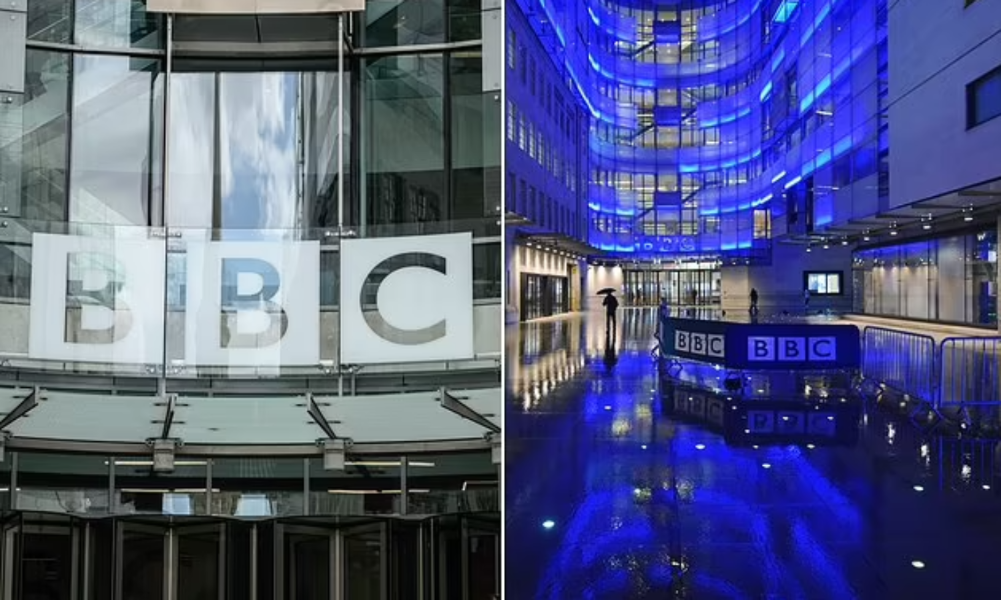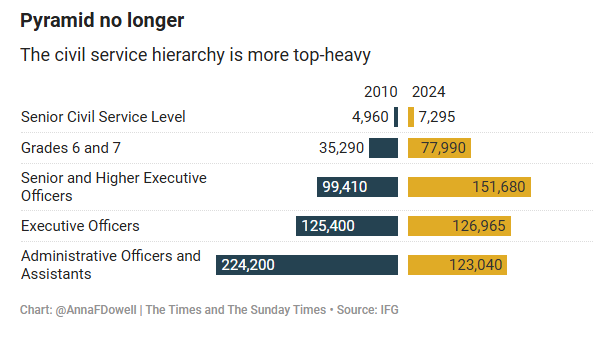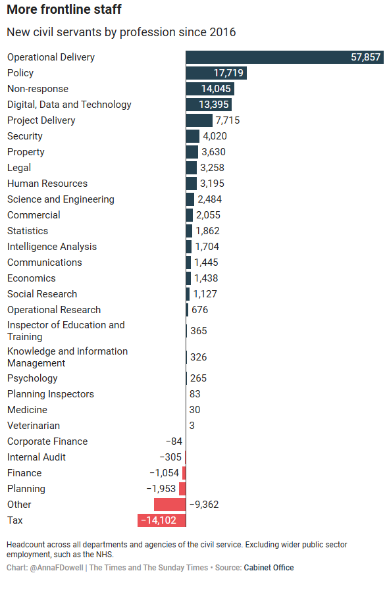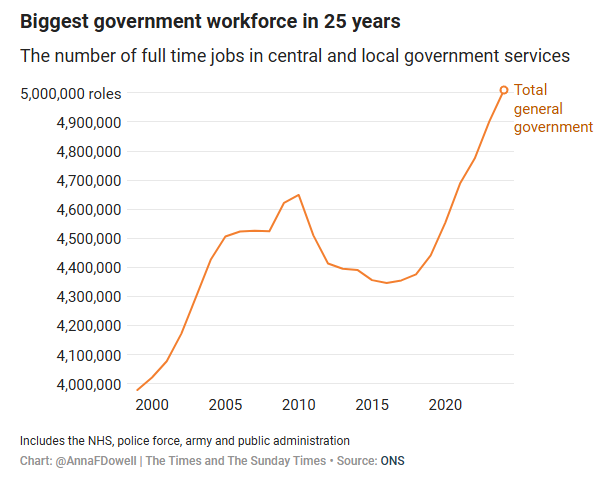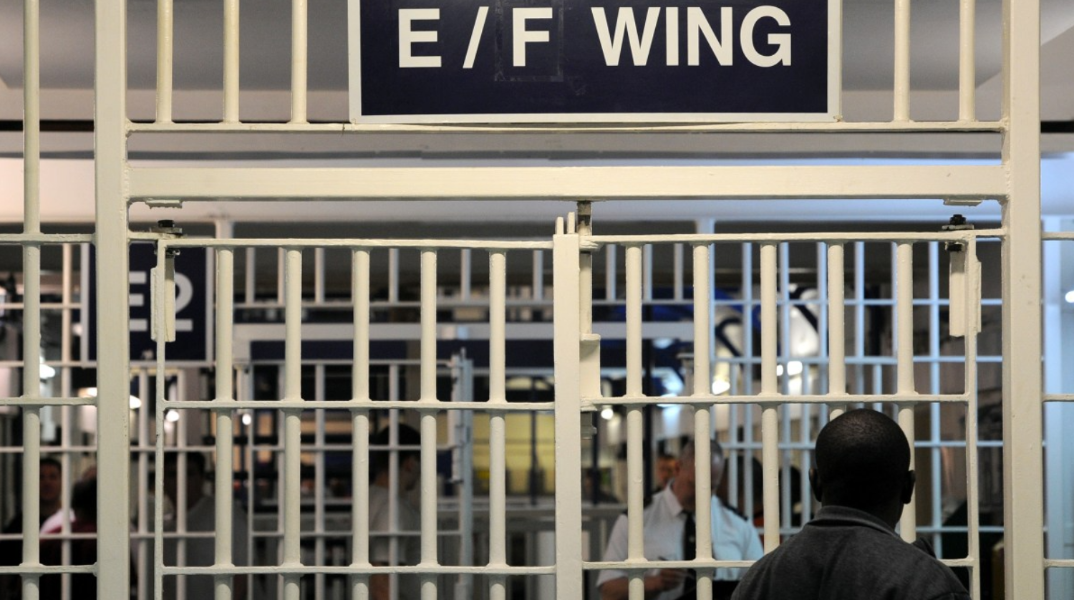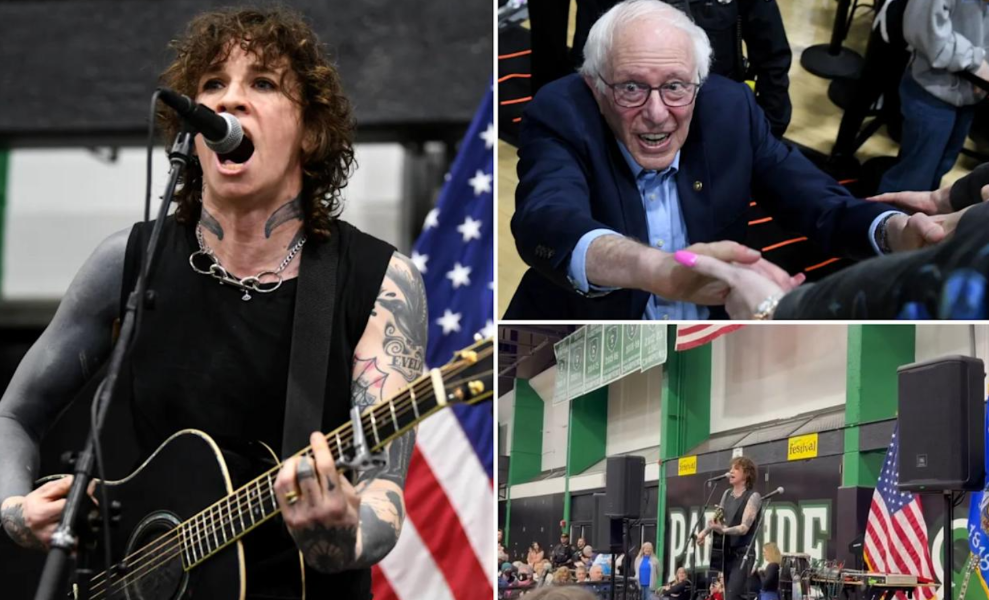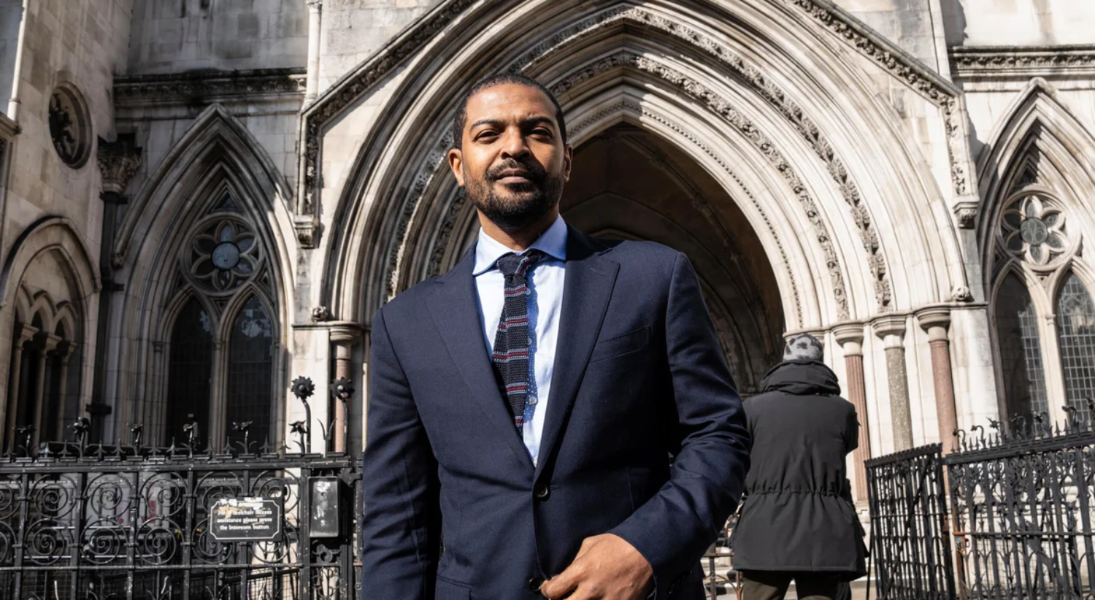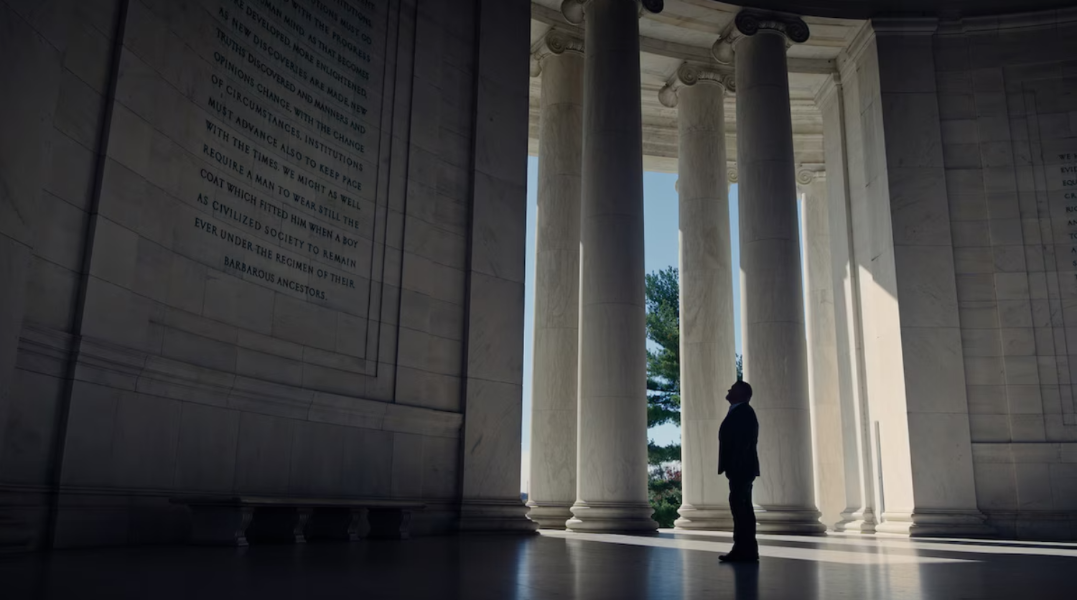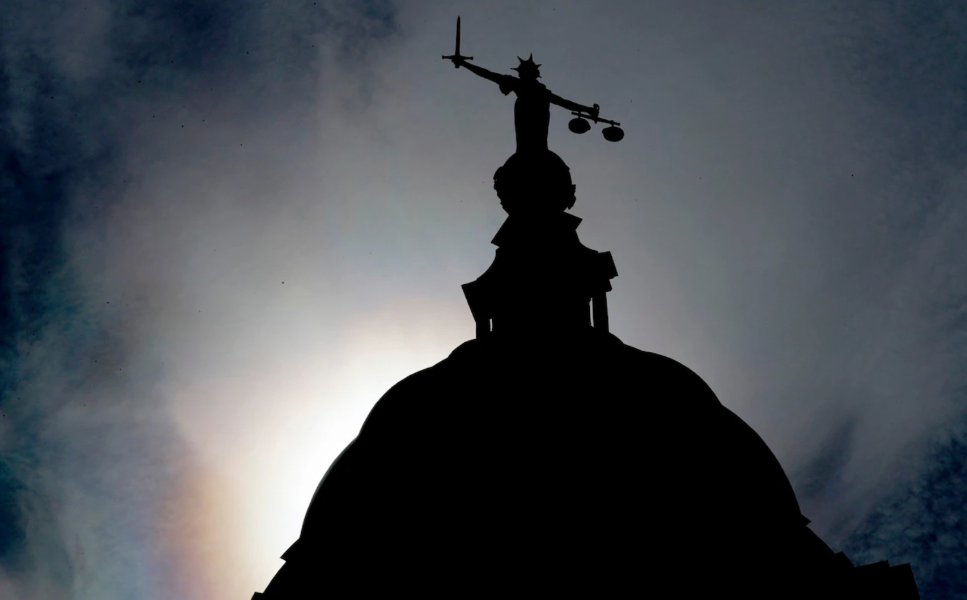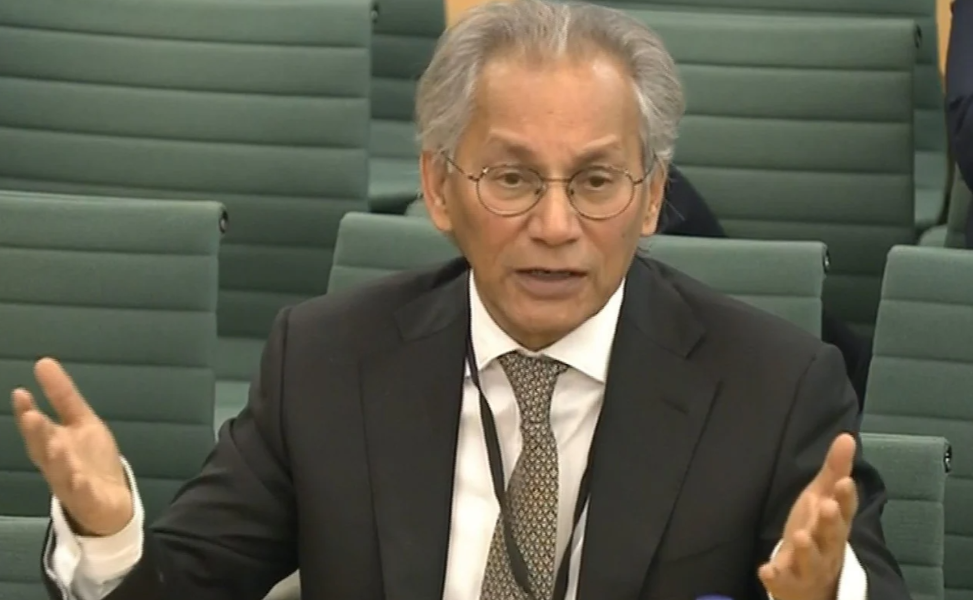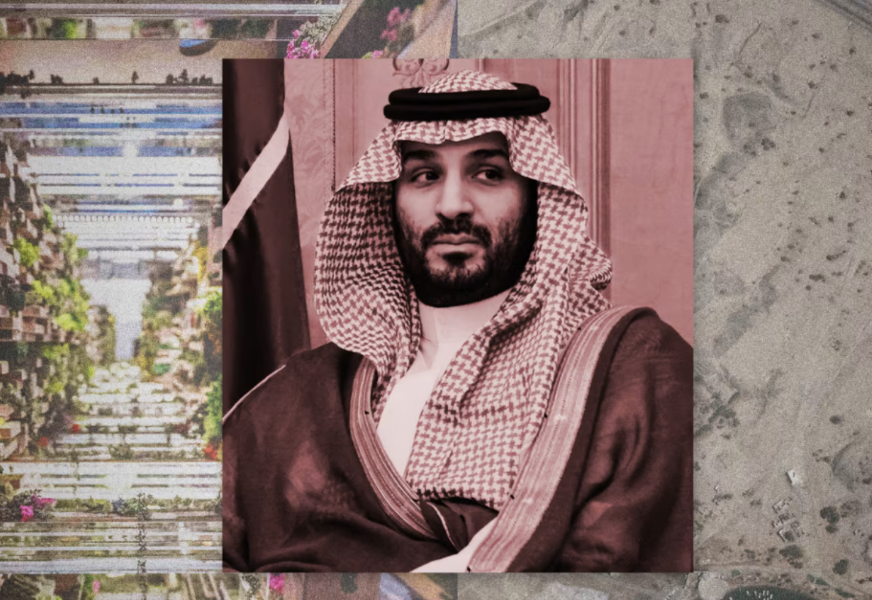-
Posts
9,975 -
Joined
-
Last visited
Content Type
Events
Forums
Downloads
Quizzes
Gallery
Blogs
Everything posted by Social Media
-
A senior aide to Health Secretary Wes Streeting has been suspended from the Labour Party and is under parliamentary investigation after admitting to indecent exposure. Sam Gould, 33, pleaded guilty to unlawfully exposing himself, leading to widespread condemnation and demands for his resignation as a Redbridge councillor. Streeting expressed his dismay over the revelations, stating, “I am shocked and horrified by this news and my heart goes out to the victims of these totally abhorrent acts. No one should have to endure this behaviour and I am grateful to the police for taking swift action.” Gould appeared at Barking Magistrates’ Court on Monday, where he was released on bail following his guilty plea. His case was first reported by *The Sun*. Alongside his suspension from the Labour Party, he now faces mounting pressure to step down from his position as a councillor in Redbridge. Streeting emphasized his disappointment in his aide’s actions, saying, “A disciplinary process has been under way since I was made aware of his arrest at the weekend and, following his guilty plea, I am calling for him to resign as a Redbridge councillor immediately. He has abused my trust, the trust of my team and the trust of my constituents and must now accept the consequences of his actions.” Labour has acted swiftly in response to the allegations. A party spokesperson addressed the situation, stating, “These allegations are extremely serious and upsetting. As soon as they were brought to our attention, Mr Gould was immediately suspended both from his role in the constituency office and from the party, pending a police investigation. We will not be providing any further comment during legal proceedings.” Gould is set to be sentenced next month. His guilty plea has reignited discussions around the handling of indecent exposure cases within the criminal justice system. During the general election campaign, Labour committed to overhauling what it described as a “woefully inadequate” approach to addressing such crimes. In light of the Sarah Everard case, the party vowed to conduct a “fundamental review” of indecent exposure, launch a public information campaign encouraging victims to come forward, and implement specialist training for police officers. As the legal process unfolds, the pressure on Gould to resign intensifies, while Labour continues to reaffirm its commitment to tackling these issues within the justice system. Based on a report by The Telegraph 2025-03-13
-
Recent figures from the BBC’s annual report reveal that senior managers from minority backgrounds, including ethnic minorities, women, LGBT individuals, and disabled staff, receive higher salaries than their counterparts. This revelation has sparked criticism, with some arguing that the broadcaster, despite its commitment to equal pay, is now overseeing what has been called "reverse pay gaps." The BBC’s 2021-2023 "diverse leadership" targets aimed for 50 percent of senior roles to be occupied by women, at least 20 percent by black, Asian, or minority ethnic staff, and 12 percent by disabled individuals. Data from the latest report, cited by *The Telegraph*, indicates that LGBT senior managers earn 15.6 percent more than those who do not identify as such. Senior leaders from black, Asian, and other ethnic minority backgrounds earn a median 12.6 percent more than their white colleagues. Disabled senior managers receive an 8.4 percent higher salary than non-disabled peers, while female bosses in top roles earn 5.7 percent more than male counterparts. Elliot Keck of the TaxPayers’ Alliance criticized these findings, telling *The Telegraph*, "Licence fee payers will be dismayed by these reverse pay gaps. Auntie’s obsession with diversity, equality, and inclusion has resulted in the very discrimination that it was supposed to protect against. The BBC needs to foster a culture of meritocracy, not one of virtue-signalling." A BBC source responded by noting that these pay gaps were specific to senior management and not reflected in the broader workforce. A spokesperson for the broadcaster defended its hiring and compensation practices, stating, "The BBC is committed to fair and equal pay for all, and all appointments are made on merit. An external Equal Pay Audit recently concluded that there was no evidence of systemic bias in our pay approach or policies. We continue to monitor our pay gaps closely and do expect to see small fluctuations year-on-year, and we’d advise against the selective use of figures." Based on a report by Daily Mail 2025-03-13 Related Topics: BBC Chairman Calls for More Working-Class Northerners to Balance Liberal Bias BBC Chairman Proposes Higher Fees for Wealthier Households
-
In a candid interview with *The Times of London*, acclaimed actor Ian McKellen encouraged closeted actors to embrace their true selves, declaring that staying hidden is unnecessary. The 85-year-old, known for his roles in *The Lord of the Rings* and *X-Men*, reflected on his own experience coming out in 1988 during a BBC radio interview, which preceded his co-founding of the LGBTQ rights charity Stonewall in the U.K. “I have never met anybody who came out who regretted it,” McKellen told *The Times*. “I feel sorry for any famous person who feels they can’t come out. Being in the closet is silly — there’s no need for it. Don’t listen to your advisers, listen to your heart. Listen to your gay friends who know better. Come out.” Despite great strides in LGBTQ representation, McKellen pointed out that no openly gay actor has ever won an Academy Award for Best Actor, nor has there been an openly gay U.K. prime minister or Premier League footballer. He speculated that young athletes, much like actors, might be receiving poor advice from agents more concerned with their own interests than their clients’ well-being. “I would imagine young footballers are probably, like actors, getting very bad advice from agents who are worried about their own incomes. But the first Premier League footballer to come out will become the most famous footballer in the world, with all the agencies begging for his name on their products.” McKellen expressed hope that in England, where same-sex marriage has been legal since 2014, societal acceptance has grown. “In this country, I hope because of gay marriage, more people are less frightened and more accepting of gay people,” he said. “Elsewhere the picture is not so good.” His advocacy for LGBTQ rights stretches back decades. Though some colleagues were aware of his sexuality, McKellen only came out publicly at 48, during a period when England was considering Section 28—a law that prohibited the “promotion of homosexuality” by local authorities. Shortly after its enforcement, Stonewall was formed and ultimately led efforts to have the law repealed. McKellen also revealed he is mentoring a fellow openly gay actor who will play the lead in a stage production of Christopher Marlowe’s *Edward II*, a historical drama centered on the 14th-century English king and his same-sex relationship. McKellen himself performed in the play back in 1969 in Scotland, at a time when homosexuality was still illegal in the country. Reflecting on the role, he remarked, “You don’t have to be gay to play Edward II. But it helps.” Based on a report by NBC News 2025-03-13
-
Despite decades of promises to streamline Whitehall, the civil service continues to expand without becoming significantly more effective. Every few years, a new government pledges to cut staff, boost efficiency, and reward high performers while removing underachievers. Yet, the same systemic issues remain. This cycle is not new. In 2004, Tony Blair called for radical reform, demanding fewer Whitehall staff, greater specialization, and an end to rigid departmental structures. Fast forward to 2025, and Sir Keir Starmer is making the same demands. Even earlier, the 1968 Fulton report criticized an overreliance on generalists, a lack of scientific expertise, and poor personnel management. The fundamental question is why, after all these years, change remains elusive. According to Alex Thomas from the Institute for Government, one key reason is the lack of a clear leadership structure. “One of the reasons why change is hard is that nobody really runs the civil service,” he explained. “The cabinet secretary is head of the civil service, but in the end, departments are federated and do their own thing.” This decentralization limits any prime minister’s ability to implement widespread reform. Recent history has proven that political pledges alone are insufficient. In 2022, Boris Johnson vowed to cut 90,000 civil service jobs, reversing the post-Brexit increase. However, despite a promised “headcount cap” in 2023, civil service numbers continued to rise. Today, the workforce is 115,000 stronger than its pre-Brexit low, making it the largest since 2006. Lord Maude of Horsham, who led significant reductions in civil service size under the coalition government, believes it is possible to make cuts without chaos. “We didn’t set a target to downsize by more than 20 percent, but it did happen without any massive drama—so it can be done,” he said. However, post-Brexit political instability made it difficult for ministers to stay focused on long-term reform. As a result, even widely supported initiatives, such as Michael Gove’s 2021 government efficiency plan, ultimately stalled. The Public and Commercial Services (PCS) union, represented by Fran Heathcote, argues that Maude’s previous cuts were unsustainable. She points out that Brexit and the COVID-19 pandemic forced the government to hire more staff. Indeed, the chaotic response to these crises led to uncontrolled recruitment. “You could say that the civil service and ministers wasted the opportunity to rewire the state during those crises,” Thomas observed. “There is now scope to unwind some of that growth.” There is general agreement that the civil service needs a way to remove poor performers. However, as Thomas cautions, measuring performance in government work is often difficult. Meanwhile, Dave Penman, general secretary of the FDA civil service trade union, argues that uncompetitive salaries are a major issue. Real pay for top civil service grades has fallen by over 20 percent since 2010, leading to record-high staff turnover. Middle management has doubled in size over the past decade, as departments have promoted staff to circumvent pay constraints—eliminating much of the intended cost savings. Beyond Whitehall, the government workforce has now surpassed five million, driven primarily by growth in the NHS and academized schools. Local government, however, has not recovered from post-2010 cuts. In 2000, councils employed as many people as central government; today, they are half that size. Some growth in the civil service has been unavoidable. Brexit led the UK to take on many responsibilities previously handled by the EU. For example, the Department for Environment, Food, and Rural Affairs has quadrupled in size since 2016. Similarly, the Home Office has hired 58,000 additional staff—many for asylum casework—as the government struggled to manage a backlog of immigration claims. Ironically, while Starmer has pledged to increase military spending, the Ministry of Defence is the only department to have shrunk since 2016. On Monday, Starmer and Sir Chris Wormald, the cabinet secretary, sent an email to civil servants promising a “rewiring of the British state.” They acknowledged that top performers had been “shackled by bureaucracy, frustrated by inefficiency, and unable to harness new technology.” Their message was optimistic: “You will be supported to do things differently and be rewarded for delivery.” However, history suggests that talk is easy; meaningful reform is much harder. Andrew Haldenby of the Effective Governance Forum warns that past attempts have failed because prime ministers did not prioritize reform. “Keir Starmer has to take the lead,” he said. Starmer is expected to outline his plans in more detail on Thursday, but making those plans a reality will require a sustained effort to convince permanent secretaries and civil servants that change is in their best interest. Lord Maude offers a simple solution: appoint a dedicated head of the civil service, separate from the cabinet secretary, to focus solely on reform. “The central problem is there is no one in charge,” he said. “Unless you’re positively trying to control the size of the civil service and reduce it, it will grow. There are spasms of reform which occasionally make a difference. But there is always a tendency to regress.” Based on a report by The Times 2025-03-13
-
The Sentencing Council has firmly rejected the justice secretary’s demand to reverse new sentencing guidelines that require judges to consider an offender’s ethnic, cultural, or religious background when determining their sentence. These changes, set to take effect in April, have sparked controversy, with critics warning they could create a “two-tier” justice system by potentially leading to more lenient sentences for ethnic minority and transgender offenders. Lord Justice William Davis, the chairman of the Sentencing Council, has made it clear that the judiciary must remain independent and not be subjected to ministerial influence. In response to Justice Secretary Shabana Mahmood’s letter urging the council to withdraw the guidance, Davis stated that sentencing should not be dictated by the government. The two are set to meet for discussions on the matter. The updated guidelines advise judges to take into account whether an offender belongs to an ethnic, cultural, or religious minority when deciding between a custodial or community sentence. This has drawn sharp criticism from those who argue it undermines the principle of equal treatment under the law. Mahmood, in her letter to Davis, threatened to introduce legislation to override the independent Sentencing Council’s decision if it refused to reconsider the guidance. She also indicated she would review whether the authority to issue sentencing guidelines should be transferred from the council to government ministers. However, Davis firmly rejected these threats, emphasizing the necessity of maintaining judicial independence in sentencing matters. “I respectfully question whether the inclusion of a list of cohorts in the imposition guideline was a policy decision of any significance. However, whatever the import of the decision, it related to an issue of sentencing,” he stated. He also warned, “In criminal proceedings where the offender is the subject of prosecution by the state, the state should not determine the sentence imposed on an individual offender.” Davis further noted that he was seeking legal advice on whether the justice secretary had the authority under the Coroners and Justice Act 2009 to request immediate revisions to the guidelines. “This is not a power which ever has been used to ask the council to revise a guideline immediately after it has been published and which has been the subject of detailed consultation with the Lord Chancellor,” he added. Mahmood has argued that no government minister approved the guidance or was involved in the consultation process. However, Davis countered by stating that the consultation received 150 responses, including from the then-minister for sentencing, and that no concerns were raised about the issue now being debated. He also pointed to evidence showing disparities in sentencing outcomes between white offenders and ethnic minorities, stating that the reasons behind these disparities remain unclear. “The council’s view is that providing a sentencer with as much information as possible about the offender is one means by which such disparity might be addressed,” Davis explained. “I have seen it suggested that the guideline instructs sentencers to impose a more lenient sentence on those from ethnic minorities than white offenders. Plainly that suggestion is completely wrong.” Meanwhile, Robert Jenrick, the shadow justice secretary, has intensified pressure on Mahmood to take decisive action. He called on her to use her powers to replace members of the Sentencing Council, arguing that their stance is unacceptable. “The justice secretary’s tough talk has failed. Unless she acts decisively now, in just 21 days’ time she will preside over a justice system that she concedes is two-tier. That would be completely unacceptable,” he said. Jenrick added, “The individuals on the Sentencing Council behind this two-tier guidance must be removed and replaced with people who believe in equality under the law. The justice secretary should waste no time exercising the powers of appointment over the council that she has.” As the debate continues, the clash between the government and the judiciary underscores a fundamental tension between political authority and the independence of the courts, with significant implications for the future of sentencing policies in the UK. Based on a report by The Times 2025-03-13
-
Laura Jane Grace, the transgender rocker and frontwoman of the punk band Against Me!, has ignited a storm of controversy after opening a Bernie Sanders rally with a provocative song questioning God’s anatomy. The performance, which took place in Kenosha, Wisconsin, featured Grace performing a new solo track, *Your God (God’s D–k)*, with lyrics that many have slammed as vulgar, anti-Christian, and offensive. During the song, Grace sang, *“Does your god have a big fat d–k? Cause it feels like he’s f–king me.”* The lyrics continued with even more explicit lines, including, *“When he whips out his meat does your world fall to its knees?”* and *“Does he chew c– like bubblegum and give b–wjobs like a vacuum?”* The song quickly drew backlash, with critics calling it a deliberate attack on religious beliefs. Conservative social media erupted in outrage. Libs of TikTok called the performance *“absolutely sickening.”* Political commentator Robby Starbuck condemned the act, writing on X, *“This is who the Democrats are now. Pure evil.”* Others criticized the explicit nature of the lyrics, with one user commenting, *“God will not be mocked.”* Even some Democrats expressed discomfort with the choice of performer. A self-identified moderate Democrat wrote, *“It’s hard to express how ashamed and disappointed I am in these people now. What has happened these last few years may not ever be undone. Inexcusable.”* Another critic remarked, *“Little Bernie has gone full Satan, right before our eyes! What kind of singer even writes this on paper, let alone sings it in front of an audience?”* Grace, 44, has been a longtime supporter of Bernie Sanders, previously performing in support of him during the 2020 campaign. Known for her raw and rebellious style, she has never shied away from controversy. In a past performance, she sang about burning crucifixes, white supremacy, and automatic weapons, with lyrics like, *“God is good and God is great, now get the f–k out of the USA.”* The Sanders rally, part of a national tour titled *"Fighting Oligarchy: Where We Go From Here,"* drew approximately 3,500 attendees to a small college sports arena. Wisconsin, the event’s location, has been a battleground state in recent elections, flipping to the Republicans in the last presidential race. Despite the backlash, neither Sanders nor his campaign has publicly commented on Grace’s performance or the controversy it has stirred. However, the incident has once again highlighted the growing cultural and political divide, with critics pointing to the performance as evidence of what they see as an increasingly extreme and out-of-touch progressive movement. Based on a report by NYP 2025-03-13
-
Noel Clarke, the actor at the center of a high-profile libel trial, has accused The Guardian of destroying his life with what he describes as false allegations of sexual misconduct. The 49-year-old is suing Guardian News and Media (GNM) over multiple articles and a podcast that alleged misconduct by Clarke, including a 2021 feature in which 20 women came forward with claims against him. Clarke has consistently denied all accusations, while GNM maintains that its reporting is both truthful and in the public interest. Taking the stand in London’s High Court, Clarke was visibly emotional as he addressed the allegations, stating, “They have smashed my life for four years with this rubbish, this nonsense. Four years.” He continued, “I did not do this, I would not do this. I have got children. This is not true.” He asserted that while he is “a flawed guy,” he is not the person he has been portrayed as. One of the allegations Clarke denied involved an incident with a woman known as “Penelope.” The court heard claims that Clarke had “giggled” after getting an erection during a sex scene, allegedly saying, “Look what you have done to me.” Clarke refuted this, stating, “Definitely not. We were under immense time pressure.” He emphasized that such scenes can be uncomfortable but insisted that no such incident occurred. “In terms of me having an erection, that did not happen. There were 20 people in the room. Where are the people who saw it?” he asked. He also detailed how the scene had been thoroughly planned, including a mutual agreement not to use modesty patches, stating, “Nobody had any problems with it.” Clarke further accused GNM of attacking his artistic work. “You are attacking my art, because of how I choose to direct my films, and it is egregious,” he told GNM’s lawyer, Gavin Millar KC. The court also heard allegations from another woman, “Sophia,” who claimed that Clarke had grabbed her hand and placed it on his crotch and also held her by the throat. Clarke dismissed these claims as “nonsense” and pointed out that he and “Sophia” had continued discussing potential projects together even after the alleged incident. “She has completely mixed herself up in her own lies,” he said. When questioned about why she would fabricate such claims, Clarke responded, “I think that Sophia is lying because she wanted attention.” He further stated, “I think she wanted to feel something and wanted to feel part of something to be believed.” Concluding his statement, he declared, “Unfortunately, this particular person is telling flat-out lies.” The trial, which will determine liability rather than the extent of any damages, is ongoing. Clarke has significantly increased his claim for special damages, now exceeding £70 million, and is also pursuing legal action over alleged conspiracies to fabricate claims against him. Philip Williams, representing Clarke, argued in written submissions that his client “has clearly established the falsity of all of the allegations” and had been given little opportunity to defend himself when the accusations were initially published. Williams claimed Clarke was now widely perceived as a criminal by colleagues who once trusted him. In defense of its reporting, GNM’s legal team, led by Millar, insisted that the publication had not blindly accepted the allegations. “Much time and resource was devoted to getting to the truth,” Millar stated, adding that there was “ample evidence” that the articles were either wholly true or substantially accurate. The trial is set to conclude in April, with a written judgment to be issued at a later date. Until then, Clarke remains steadfast in his fight to clear his name, as the legal battle continues to unfold. Based on a report by The Telegraph 2025-03-13
-
A new documentary titled *The Age of Disclosure* has ignited debate by making an explosive claim: aliens are real, and the U.S. government has been covering up their existence for decades. The film, which had its world premiere at SXSW, features testimonies from 34 senior officials across the U.S. military, intelligence, and government sectors. It doesn’t just explore whether extraterrestrials exist—it questions why the government has kept this information hidden for so long and whether that secrecy has put the world at risk. The film’s director, Dan Farah, asserts that government cover-ups surrounding unidentified anomalous phenomena (UAPs)—a term now used instead of UFOs—have spanned 80 years. He claims that secret programs have been working to reverse-engineer alien technology retrieved from crashes, fueling an arms race with Russia and China. “The first country that cracks this technology will be the leader for years to come,” Jay Stratton, former director of the Pentagon’s UAP task force, states in the documentary. “This is similar to the Manhattan Project: We developed the atomic weapon, we won the war, and it made us a superpower for almost a century now. This is the atomic weapon on steroids.” Among those interviewed is Luis “Lue” Elizondo, a former Defense Department official who once worked with the Advanced Aerospace Threat Identification Program (AATIP). Serving as the film’s narrator, he alleges that an ultra-classified initiative, known as the Legacy Program, has been collecting and concealing evidence of extraterrestrial activity for decades—even from U.S. presidents. “Even presidents, it seems, have been operating on a need-to-know basis,” Senator Marco Rubio says in the film. Elizondo suggests that UAPs are studying Earth's nuclear and military capabilities and warns that the lack of widespread awareness could lead to catastrophic consequences. He compares the situation to 9/11, when intelligence failures led to a devastating attack despite prior warnings. “We discovered that there actually was another deeply hidden and much larger UAP program,” he states in the documentary. “This program was so sensitive that it was withheld from the secretary of defense, Congress, and even the president of the United States.” The documentary also features James R. Clapper Jr., former director of national intelligence, and Tim Gallaudet, former chief oceanographer for the Navy. Farah reveals that while 34 officials were willing to appear on camera, at least 10 others—including politicians and intelligence officers—refused due to fears of professional ruin or even personal harm. “Fearful about retaliation from those who do not want this information revealed [or] fearful for their lives,” he tells *The Washington Post*. One of the most controversial claims in the film is that the U.S. has been capturing UFOs since 1947, and that these retrievals have included “the bodies of non-humans.” Elizondo goes even further, alleging that multiple species of extraterrestrials exist. The film also presents firsthand accounts from military personnel who claim to have witnessed crafts defying the laws of physics, including sightings of giant flying black cubes and red squares the size of football fields hovering near military bases. Some interviewees recount seeing UAPs deactivate and even activate nuclear weapons in both the U.S. and Russia. Physicist Hal Puthoff, who has conducted government-funded UFO research, praises Farah for giving credibility to these testimonies by bringing them forward simultaneously. “The brilliance of what Dan Farah did was to quietly go behind the scenes and talk to 34 people and say, ‘Okay, if you all come out at the same time, then you don’t have that stigma associated [with talking about UFOs],’” Puthoff says. However, skeptics argue that the documentary lacks scientific rigor. *The Hollywood Reporter’s* Daniel Fienberg criticizes it for presenting theories without counterarguments, writing, “My problem with *The Age of Disclosure* isn’t the lack of opposing voices. It’s that there couldn’t be experts debunking anything here. Nothing is proven, and thus nothing can be refuted.” Despite the controversy, bipartisan political figures, including Sens. Kirsten Gillibrand (D-New York) and Mike Rounds (R-South Dakota), have expressed concerns about UAPs. The film calls for greater transparency and official reporting channels for pilots and military personnel who encounter unknown aerial phenomena. Brett Feddersen, former director of aviation security on the White House National Security Council, emphasizes the importance of breaking the stigma. “If you see something or you know someone who has, don’t be afraid,” he says in the film. “It’s hard to identify things, but let the professionals take it and make sure you pass it along.” Beyond national security concerns, some experts believe the technology behind UAPs could have significant humanitarian benefits. Many of the reported crafts appear to move at extraordinary speeds without visible propulsion or fuel emissions, hinting at a possible energy source that could revolutionize clean energy. Rep. Tim Burchett (R-Tennessee), who is pushing for UFO disclosure, argues that withholding this information is unacceptable. “I am one of those crazy Christians in the world. I mean, I’m a fundamentalist. I believe Jesus died on the cross for my sins, and I don’t hate anybody that doesn’t,” he says. “I think [alien life is] just another one of God’s creations.” His concern, he adds, is that agencies like NASA and the CIA are using taxpayer dollars to fund unnecessary research when the truth is already known. “As we say in East Tennessee, it’s as crooked as a dog’s tail.” Ultimately, *The Age of Disclosure* raises a question that may define the future: if aliens are real, how long can their existence remain a secret? Based on a report by WP 2025-03-13 The Age of Disclosure | Official Trailer (2025)
-
The captain of the Solong cargo ship, which collided with a US oil tanker earlier this week, has been confirmed as a Russian national. Ernst Russ, the shipping company involved, verified on Wednesday that the 59-year-old captain was Russian, according to a report from Reuters. The incident occurred on Monday when the Portuguese-flagged Solong crashed into the US-flagged Stena Immaculate, a tanker carrying jet fuel, off the East Yorkshire coast. The collision left one crew member missing and raised concerns over potential environmental damage due to chemical leaks into the sea. Crowley, the company operating the Stena Immaculate, described the severity of the crash, stating there were "multiple explosions onboard." Footage from the aftermath captured thick black smoke pouring from the hull of the tanker. Search and rescue helicopters were dispatched, but despite extensive efforts, the search for the missing Solong crew member was eventually called off. Meanwhile, all 23 crew members aboard the US vessel were confirmed safe. Following the collision, Humberside Police arrested the Solong's captain on suspicion of gross negligence manslaughter. Authorities have confirmed that he is cooperating with investigators. Detective Chief Superintendent Craig Nicholson stated: "Extensive work has already been carried out, and we are working closely with our partners to understand what happened, and to provide support to all of those affected. Following enquiries undertaken by my team, we have arrested a 59-year-old man on suspicion of gross negligence manslaughter in connection with the collision. This follows the conclusion of search operations by HM Coastguard for the missing crew member of the SOLONG." Investigations are ongoing as authorities seek to establish the precise circumstances that led to the crash. Based on a report by The Standard 2025-03-13
-
Russia has taken hundreds of Ukrainian soldiers into custody and has threatened to treat them as terrorists, as President Vladimir Putin appeared in military fatigues just hours after former U.S. President Donald Trump warned of devastating consequences if Moscow refused to accept a ceasefire deal. Russian officials claimed that approximately 430 Ukrainian troops were captured in the Kursk region, where Ukraine had launched a counteroffensive last summer. Valery Gerasimov, Russia’s chief of general staff, informed Putin about the surrender of Ukrainian forces, stating, "The Ukrainian military, seeing futility of further resistance, started surrendering. Four hundred and thirty fighters were captured." Putin, who was visiting troops in Kursk, responded with a chilling remark, saying that the prisoners should be "treated as terrorists, in accordance with the laws of the Russian Federation." Trump continued, emphasizing the gravity of the situation. "In a financial sense, yes, we could do things that would be very bad for Russia, that would be devastating for Russia. But I don't want to do that." Despite the ultimatum, Moscow has remained silent on the proposed ceasefire agreement, stating that they will not respond until U.S. envoys formally present it in person. Trump confirmed that negotiators were en route to the Russian capital, though he refrained from disclosing additional details. Later, the White House clarified that special envoy Steve Witkoff was scheduled to travel to Moscow later in the week. Additionally, U.S. National Security Advisor Mike Waltz had recently held discussions with his Russian counterpart. White House Press Secretary Karoline Leavitt urged Russia to accept the proposal, stating, "We urge the Russians to sign on to this plan." Leavitt underscored the importance of the ceasefire, likening the situation to the final stages of an American football game. "We are at the 10th yard line, and the president expects the Russians to help us run this into the end zone," she said. Trump reiterated his determination, telling reporters during a meeting with the Irish prime minister, "People are going to Russia right now as we speak. And hopefully we can get a ceasefire from Russia." Based on a report by Daily Mail 2025-03-13
-
President Donald Trump has issued a stark warning to Russian President Vladimir Putin, threatening severe financial consequences if Russia refuses to agree to a 30-day ceasefire with Ukraine. His ultimatum comes as his administration works to bring an end to the ongoing conflict, which he has repeatedly suggested could escalate into World War III. Trump’s comments follow the announcement by Secretary of State Marco Rubio and national security advisor Mike Waltz that Ukraine has agreed to a 30-day ceasefire—on the condition that Russia also agrees. This marks a notable shift in Trump’s approach to Russia, as he has previously praised Putin’s strategic thinking and, at times, expressed an understanding of Russia’s position. His stance took a sharper turn recently, particularly following an intense Oval Office meeting with Ukrainian President Volodymyr Zelensky two weeks ago. This shift was also evident when he posted a trade-related threat against Russia online days earlier. The United States has already imposed numerous economic sanctions on Russia and its oligarchs since the country’s annexation of Crimea in 2014, as well as following its full-scale invasion of Ukraine in 2022. However, with the prospect of a ceasefire now dependent on Russia’s response, Trump is increasing the financial pressure in an effort to force Moscow’s hand. He pointed to upcoming negotiations in Moscow, where his envoy, Steve Witkoff, is set to engage with Russian officials. When asked whether he trusted Putin to abide by a ceasefire, given previous violations, Trump responded, “We haven’t spoken to him yet with substance, because we just found out. We’re going to know very soon. I’ve gotten some positive messages, but a positive message means nothing. Very serious situation. This is a situation that could lead to World War III.” As tensions rise, the world awaits Russia’s response to Trump’s ultimatum. Based on a report by AP | Daily Mail 2025-03-13
-

BBC Chairman Proposes Higher Fees for Wealthier Households
Social Media replied to Social Media's topic in World News
An off topic post about Fox News has been removed @Purdey BBC Chairman Proposes Higher Fees for Wealthier Households -
Elon Musk, the billionaire entrepreneur and head of X, claimed on Monday that his social media platform was temporarily knocked offline due to a “massive cyberattack” originating from the “Ukraine area.” Speaking with Fox Business Network host Larry Kudlow, Musk admitted, “We’re not sure exactly what happened,” but added, “there was a massive cyberattack to try to bring down the X system, with IP addresses originating in the Ukraine area.” Cybercriminals frequently use tactics such as “spoofing” to mask their true location, creating false IP addresses to make it appear as though their attacks come from specific regions. This raises questions about whether the attack truly originated from Ukraine. Cybersecurity experts told *The Post* that it was highly unlikely that Ukrainian government-backed hackers would carry out such a large-scale operation, especially given the timing—just one day before key diplomatic talks between the United States and Ukraine were set to take place in Saudi Arabia. “It makes absolutely no sense for Ukrainian hackers to attack Elon Musk the day before a meeting between the United States and Ukraine in which they are attempting to get the United States to start sharing intelligence again, and provide aid and assistance, working towards a peace agreement that has been in question since the Oval Office visit,” said Alex Plitsas of the Atlantic Council. “The question everyone looking at this needs to ask themselves is, ‘who benefits from this?’ And it’s not Ukraine.” Some cybersecurity analysts suggested that other groups, such as the hacking collective Anonymous—known for its vocal opposition to Musk—might have had the capability and motivation to target X. However, Plitsas pointed out that only Russia would have a strong incentive to link Ukraine to the attack. “Anonymous is another likely possibility based on the statements they put out publicly and the capability and desire to hit (Musk), but in terms of who stands to benefit based on the timing—the only one is really the Russians, because doing it today would disrupt the talks that are scheduled for tomorrow,” Plitsas explained. “The only people that would stand to benefit from that would be the Russians in the sense that they’re blaming the Ukrainians, so they would want the Ukrainians to look bad and disrupt the talks.” Additionally, with the United States having recently halted offensive cyber operations against Moscow, Russian cyber actors may have had more resources available to conduct such an attack. Throughout Monday, thousands of users reported outages on X. According to DownDetector.com, reports of platform disruptions began at 6 a.m., with over 40,000 users experiencing issues by 10 a.m. An additional 25,000 users reported problems with the X app later in the day. By late afternoon, the platform appeared to have recovered. “It’s up,” Musk said when asked by Kudlow about X’s status shortly before 5 p.m. ET. On X, Musk further commented, “We get attacked every day, but this was done with a lot of resources. Either a large, coordinated group and/or a country is involved.” Based on a report by NYP 2025-03-12
-
Justice is meant to be blind, treating all individuals equally regardless of their race, gender, or beliefs. Yet in modern Britain, that fundamental principle is being steadily eroded. From the moment of arrest to sentencing, minority defendants are being treated with greater leniency than their white counterparts. The idea that justice should be impartial is increasingly being replaced by an approach that prioritizes identity politics over fairness. Recent sentencing guidelines highlight this shift. Judges are now instructed that a pre-sentence report is generally required if a defendant is from an ethnic, cultural, or faith minority, female, transgender, a drug addict, or a victim of modern slavery, trafficking, or exploitation. These reports are intended to identify mitigating circumstances that could result in non-custodial sentences such as community punishments or suspended sentences. In effect, these guidelines suggest that minority groups should receive more lenient treatment than white defendants, particularly white men. The provisions related to slavery and trafficking also open the door for legal arguments that could allow illegal immigrants to avoid prosecution altogether. This is not an isolated development. Last year, the Judicial College published the *Equal Treatment Bench Book*, which endorses the view that treating people equally sometimes requires treating them differently. It specifically states that custodial sentences have a disproportionate impact on black mothers due to higher rates of single parenthood in black communities. Similarly, it suggests that for women who wear the burqa, judges should conduct a "balancing exercise" before requesting the removal of a veil. Identification, it argues, can be established in private, and it even questions the reliability of assessing credibility based on appearance and demeanor. The Bench Book also contains a section on "Islamophobia," a term that conflates criticism of Islam as a belief system with racism against individual Muslims. It cites statements from the Muslim Council of Britain (MCB), an organization still banned from government engagement due to its links to extremism. It also references a parliamentary report that warns against a "supposed right to criticize Islam," arguing that such criticism contributes to "anti-Muslim racism." Disturbingly, it even points to the exposure of grooming gangs as an example of how criticism "humiliates, marginalizes, and stigmatizes Muslims." This ideology is not confined to the courts; it has also infiltrated policing. The College of Policing’s *Race Action Plan* pledges to address "the over-policing of black communities" while simultaneously arguing that black people are both over-policed and under-protected. The report acknowledges that black individuals are more likely to be victims of knife crime and murder but omits the fact that they are also statistically more likely to commit such crimes. Instead, it dismisses any discussion of underlying causes and simply labels disparities as problems that must be corrected. Official data, however, contradicts the narrative of systemic racial bias in sentencing. Differences in sentencing outcomes can largely be explained by the higher likelihood of white defendants pleading guilty, which results in reduced sentences. Stop-and-search powers, while frequently misused, should be reformed based on effectiveness rather than identity politics. It is misleading to pretend that young black men are only victims of knife crime and not also perpetrators. British policing and justice have been poisoned by American-style racial ideology. Following George Floyd’s murder in the United States, police forces in Britain committed to becoming "institutionally anti-racist." This does not merely mean opposing racism but actively working to eliminate racial disparities in outcomes—even if doing so undermines principles of equality. As a result, police forces have stopped identifying suspects' racial backgrounds unless they are white, and authorities have refused to be transparent about major crimes, as seen in the Southport murders. Meanwhile, activists have learned how to exploit these new dynamics, leading to absurd situations such as Islamists advising police during operations and different treatment of protests based on identity. This shift has not been driven by Parliament or the democratic process but by unelected officials—judges, prosecutors, police officers, and bureaucrats—who have used guidelines and technocratic rule-making to reshape the legal system. The fundamental principles of British justice have been altered, prioritizing ideology over fairness. The consequences of these changes are felt not only in criminal justice but in broader issues like weak law enforcement, failures in immigration control, and the misuse of human rights laws to shield criminals. If Britain is to restore fairness and public confidence in its legal system, a complete overhaul is needed. The police and courts must return to the fundamental principle of equality before the law. Justice should not be determined by identity but by the nature of the crime. True fairness can only be reestablished if elected leaders take responsibility and use their authority to reverse these misguided policies. Based on a report by The Telegraph 2025-03-12
-
The story of Moses parting the Red Sea has long been regarded as one of the most astonishing miracles in both Christian and Jewish traditions. However, new scientific research suggests that this biblical event may have a basis in natural phenomena rather than divine intervention. According to the biblical account, Moses, acting under God’s command, parted the Red Sea to allow the Israelites to escape from an oppressive Egyptian pharaoh. As they crossed, the waters suddenly rushed back, sweeping away the pursuing Egyptian forces. But researchers at the National Center for Atmospheric Research argue that such an event could have been caused by powerful winds blowing at just the right speed and angle. These winds, they suggest, might have created a temporary land passage before the water came surging back with force comparable to a tsunami. Oceanographer Carl Drews explained this theory, telling the *Daily Mail*, “The crossing of the Red Sea is a supernatural phenomenon that incorporates a natural component—the miracle is in the timing.” He added that computer models suggest winds of at least 60 miles per hour striking the water at a precise angle could have opened a channel roughly three miles wide. Nathan Paldor, an ocean scientist from the Hebrew University of Jerusalem, echoed this idea, stating, “When a strong wind blows southward from the head of the Gulf for about one day, the water is pushed seawards, thus exposing the bottom that was previously underwater.” Traditionally, scholars and religious texts have placed the event in the Gulf of Aqaba, which separates Egypt’s Sinai Peninsula from Saudi Arabia and the southern region of Jordan. However, some geologists argue that such a crossing would have been impossible due to the Gulf of Aqaba’s extreme depth, which reaches up to 6,000 feet. Additionally, biblical descriptions mention winds coming from the east, while scientific models indicate that for such an event to occur, winds would need to blow from the southwest. Given these contradictions, archaeologists have explored alternative locations that could align with an extreme weather event similar to the one described in the Book of Exodus. One such possibility is the Gulf of Suez, which is significantly shallower, reaching only about 100 feet deep. The relatively flat seabed in this region, combined with strong tidal forces, could have exposed dry land under the right conditions. Bruce Parker, former chief scientist of the National Oceanic and Atmospheric Administration, suggested that Moses may have been aware of these natural tidal patterns and used them to his advantage. “Moses had lived in the nearby wilderness in his early years, and he knew where caravans crossed the Red Sea at low tide,” Parker wrote in a 2014 *Wall Street Journal* article. “He knew the night sky and the ancient methods of predicting the tide, based on where the moon was overhead and how full it was.” However, even the Suez theory faces challenges, particularly with the claim in Exodus that easterly winds caused the parting. In a study published in *PLOS One*, Drews suggested an alternative location: the Lake of Tannis in the Nile Delta. This theory is based on interpretations of the Hebrew Bible, which refer to the crossing as occurring at a "sea of reeds" rather than the Red Sea. The lake’s shallow, brackish waters are known for their dense reeds, which could support the translation. Drews cited both ocean modeling and historical records from 1882, which suggest that strong winds in the eastern Nile Delta can push away up to two meters of water, temporarily exposing dry land. He described the lake’s structure as providing a "hydraulic mechanism for the waters to divide." Despite his scientific explanation, Drews remains firm in his faith, believing the event still carries miraculous significance. “Personally, I am a Lutheran who has always understood that faith and science can and should be in harmony,” he said, adding, “It is fitting and proper for a scientist to study the natural components of this narrative.” While the debate over the Red Sea crossing continues, both religious believers and scientists seem to agree on one thing—whether by divine intervention or natural forces, the timing of such an event would have been extraordinary. Based on a report by NYP 2025-03-12
-
Reports have surfaced suggesting that Kash Patel, the newly appointed FBI director, is exploring a potential partnership with the Ultimate Fighting Championship (UFC) to train FBI agents in martial arts. UFC President and CEO Dana White confirmed on Saturday that Patel is "dead serious" about the proposal. Newsweek has reached out to the UFC and the Department of Justice, which oversees the FBI, for comment regarding the matter. Patel, a controversial pick by former President Donald Trump, was confirmed to lead the agency by a narrow 51-49 Senate vote. Since taking office, he has initiated sweeping changes, including relocating up to 1,000 employees to field offices nationwide and moving 500 staff members to an FBI office in Huntsville, Alabama. His tenure has been marked by a push for operational restructuring and, now, potentially an unconventional approach to FBI training. White, an outspoken supporter of Trump, has been closely associated with the former president, speaking at the Republican National Convention in both 2016 and 2024. The two have frequently been seen attending UFC fights together. White recently expanded his influence by joining the board of Meta, Facebook’s parent company, in January. In late February, Reuters reported that Patel proposed the UFC training idea during a video conference call with FBI field offices. Two individuals briefed on the call described the proposal as "surreal" and "wacky." Patel credited Trump’s deputy director pick, conservative podcast host Dan Bongino, for inspiring the idea, saying Bongino encouraged him to explore UFC training for FBI agents. Details regarding the structure of such a partnership remain unclear. However, when asked about the idea backstage at the UFC 313 event, which Patel attended, White reaffirmed Patel’s commitment to the proposal. "After he said that my phone blew up, you know, everybody wants to be the trainers to the FBI now. But he's dead serious about that, I talked to him about it tonight, yeah he's dead serious so we'll see how that starts to come together," White said. A former Justice Department official, speaking to Reuters, suggested the proposal was primarily influenced by "the glitz and glamour show, and Trump's friend," referring to White. While Patel has yet to officially announce the initiative, any formal implementation is expected to go through Trump, given his close ties to White. Based on a report by Newsweek 2025-03-12
-
The Home Office is facing growing demands to disclose the whereabouts of Palestinian asylum seeker Abu Wadee, who was allowed into the UK despite his history of extremist rhetoric and connections to militant activities in Israel. Senior Conservative figures are urging immediate action to locate, detain, and deport him amid fears that he may have disappeared within the country. Abu Wadee, believed to be in his 30s and originally from Gaza, arrived in the UK on Thursday. Before his arrival, he had posted a video of himself aboard a dinghy in the Channel as a Border Force vessel approached, captioning it: “Thank God, we arrived in Britain.” However, reports have since emerged that Wadee had previously called for the killing of all Jews and was a key member of a militant group involved in attacks against Israel. Despite these concerns, the Home Office has refused to confirm whether it was aware of Wadee’s extremist background at the time of his entry into the country. It has also declined to disclose whether he is currently being monitored or if he remains free to move about within the UK. Police sources have indicated that they are not aware of any arrests related to the case. Shadow Home Secretary Chris Philp has called for immediate clarification, describing Wadee as “a dangerous anti-Semite and a threat to national security.” He argued that the public has a right to know what steps the Home Office has taken, saying, “There is a possibility the Government has lost track of him, and there is also a risk he may try and use spurious human rights claims to stay in the country.” Philp also criticized the current government’s handling of immigration, stating, “Labour has let in over 25,000 people in the last eight months (through small-boat crossings). We’ve got no idea who those people are and if they do pose potentially a serious risk to our citizens. This man is clearly a danger to the public and not the kind of person we want in the UK.” Conservative justice spokesman Robert Jenrick echoed these concerns, calling for immediate deportation. “The Home Secretary needs to reassure the public that this dangerous man is in detention and will be immediately deported,” he said. “But her silence suggests he’s likely been put up in a hotel free to roam the streets. That would be completely unacceptable.” Jenrick warned that this case highlights a broader national security crisis, stating, “This case uncovered by the *Mail* shows yet again that the situation in the Channel is a national security emergency. It’s high time [Sir Keir] Starmer treated it as one.” Conservative MP Ben Obese-Jecty also weighed in on the issue, writing on X: “We cannot allow those who pose a danger to our society (to) be welcomed into the country with impunity.” As pressure mounts on the Home Office to clarify Wadee’s status, the case has intensified the ongoing debate over immigration policy and national security, with critics arguing that the current system is failing to protect the public from potential threats. Based on a report by Daily Mail 2025-03-12 Related Topic: Palestinian Asylum Seeker with Terrorist Ties Welcomed into the UK
-

BBC Chairman Proposes Higher Fees for Wealthier Households
Social Media posted a topic in World News
Samir Shah, chairman of the BBC, has suggested that wealthier households should contribute more to the broadcaster’s funding, questioning the fairness of the current flat licence fee system. Instead of the existing structure, which requires all households to pay a set fee of £169.50, he indicated a preference for a levy based on property value. In his first interview since taking on the role last year, Shah told *The Sunday Times*, “Why should people who are poor pay the same as people in wealthy households?” His remarks come amid a significant drop in licence fee revenues, with the number of paying households falling by 500,000 to 23.9 million in the year leading up to April 2024. As the BBC faces growing financial pressures, executives are exploring alternative funding models. While Shah, 73, did not explicitly endorse a household levy, he highlighted its advantages, noting that it “gets rid of the enforcement issue,” which he described as “a problem.” The BBC has significantly increased its licence fee enforcement efforts, sending out 41 million letters to households between 2023 and 2024—a rise of nearly 13% compared to the previous year. Unlike the current licence fee, a household levy could be collected through council tax, simplifying enforcement. Shah’s stance aligns with that of former BBC chairman Richard Sharp, who told *The Telegraph* in 2023 that the flat licence fee was “regressive.” Culture Secretary Lisa Nandy has also been reported to be considering alternative funding mechanisms, such as general taxation, to support the broadcaster. In a wide-ranging discussion with *The Sunday Times*, Shah addressed broader concerns about the BBC’s direction. He emphasized the need for more diversity of thought within the organization, particularly among staff from working-class backgrounds. “We need more variety and diversity—more diversity of thought,” he said. “It’s on, frankly, the northern working class where we’re poor. That’s where the focus should be.” He acknowledged perceptions of liberal bias within the corporation, pointing out that media professionals often come from arts and humanities backgrounds and tend to have views that are “Liberal Centre, Centre Left.” He added, “We kind of reflect that.” The BBC has recently faced backlash over its coverage of the Israel-Hamas conflict. Protests erupted outside Broadcasting House after a documentary about Gaza was found to have featured the son of a senior Hamas figure, prompting accusations that the broadcaster had aired propaganda. Addressing concerns about the BBC’s editorial standards, Shah admitted, “We make mistakes in our journalism. We correct mistakes.” He stressed the importance of accountability, stating, “There needs to be greater accountability. People have to face the consequences of what they do.” Discussing misconduct allegations involving prominent BBC figures such as former newsreader Huw Edwards and ex-Radio 2 host Russell Brand, Shah expressed deep concern over the vulnerability of junior staff. “The theme that keeps coming through is that junior staff are vulnerable to being preyed on by people with power. We have to stop it,” he said. “I will not tolerate junior staff being scared to report what’s happening or their managers looking the other way.” He called for stronger protections for whistleblowers to ensure wrongdoing is addressed swiftly. “We need to have some way of preserving whistleblowers’ anonymity, so we can throw people out and do it quickly. I’m absolutely determined. This is a cancer we need to cut out,” he stated. Shah’s comments signal potential shifts in the BBC’s funding and internal culture, as the broadcaster grapples with financial challenges and demands for greater transparency and inclusivity. Based on a report by The Telegraph 2025-03-12 Related Topic: BBC Chairman Calls for More Working-Class Northerners to Balance Liberal Bias -
Elon Musk has once again stirred controversy, asserting that he previously challenged Russian President Vladimir Putin to "one-on-one physical combat" over the war in Ukraine. The billionaire made the claim while responding to critics who accused him of being too lenient toward Russia and failing to hold Putin accountable. On Sunday, a user on X confronted Musk, urging him to "stop pretending that Putin isn’t the aggressor" and questioning why he criticizes Ukraine but not Russia. Musk fired back, defending his position and emphasizing his support for Ukraine. "I literally challenged Putin to one-on-one physical combat over Ukraine," he wrote, adding that his Starlink satellite system has been vital to Ukraine’s military efforts. "My Starlink system is the backbone of the Ukrainian army. Their entire front line would collapse if I turned it off." Musk then expressed his frustration over the ongoing war, arguing that it has reached a destructive stalemate. "What I am sickened by is years of slaughter in a stalemate that Ukraine will inevitably lose," he continued. "Anyone who really cares, really thinks, and really understands wants the meat grinder to stop. PEACE NOW!!" The SpaceX CEO’s reference to challenging Putin appears to date back to a 2022 post on X, made shortly after Russia invaded Ukraine. At the time, Musk tweeted, "I hereby challenge Vladimir Putin to single combat. Stakes are Ukraine." When questioned about his seriousness, he doubled down, insisting that he was "absolutely serious." Musk’s latest comments were sparked by Utah Senator Mike Lee’s call to halt U.S. financial aid to Ukraine. Lee had been responding to conservative influencer Nick Sortor, who questioned how demonstrators managed to afford an enormous Ukrainian flag that was displayed in front of the White House on Saturday. Musk joined the conversation, suggesting that the "key to the puzzle" was to "place sanctions on the top 10 Ukrainian oligarchs, especially the ones with mansions in Monaco." While Musk has been vocal in his stance on Ukraine, his remarks often attract mixed reactions, with some praising his support for Ukrainian forces and others questioning his broader political motivations. Based on a report by Daily Beast 2025-03-12
-
Neom was envisioned as the centerpiece of Saudi Arabia’s grand transformation—a futuristic metropolis rising from the desert, promising cutting-edge technology and surreal architecture. Celebrities like Will Smith and Tom Brady attended an extravagant launch party on a Red Sea island, with superyachts dotting the waters and Alicia Keys performing under beaming spotlights. The event, costing at least $45 million, was meant to showcase Saudi Arabia’s future. However, behind the spectacle, the reality of Neom was far from glamorous. Sindalah, the first completed section, was already three years behind schedule, with costs soaring to nearly $4 billion—three times the initial budget. Hotels were unfinished, strong winds disrupted ferry services, and much of the site remained under construction. Most notably, Crown Prince Mohammed bin Salman, the mastermind behind Neom, was absent from the event, a move many within the project interpreted as a sign of discontent. Shortly after, Neom’s long-time leader was replaced as part of efforts to salvage the struggling mega-project. Neom was originally imagined as a revolutionary economic hub featuring ambitious developments like Trojena, an arid-mountain ski resort, and The Line, a 106-mile-long pair of skyscrapers reaching Empire State Building heights. Yet, after spending over $50 billion, these grand visions have clashed with harsh realities. Costs have escalated dramatically, delays are persistent, and reductions to Neom’s initial phase threaten its ability to attract enough residents to function as a viable business hub. A key issue, according to former employees and an internal audit reviewed by *The Wall Street Journal*, was a cycle of unrealistic expectations. The audit, a 100-page document presented to Neom’s board, found that executives manipulated financial projections to justify skyrocketing costs. The report uncovered “deliberate manipulation” of financial data by certain members of management, with support from long-time consultants McKinsey & Co. The document revealed that Neom’s long-term costs could reach $8.8 trillion by 2080—over 25 times Saudi Arabia’s annual budget—with $370 billion needed for the first phase alone. In response to the findings, a Neom spokeswoman dismissed the interpretation of these figures as incorrect but declined to provide further details. “Neom champions excellence, professionalism, diversity, and ethical conduct,” she said, adding that adjustments in cost and schedule are common for large-scale projects. The Saudi government did not respond to inquiries regarding Neom or the crown prince’s involvement. A McKinsey spokesman denied any role in financial manipulation, stating the firm ensures compliance with international commerce regulations. Despite these issues, Saudi officials now describe Neom as a long-term investment, downplaying previous claims that it would be an economic engine by 2030. Other aspects of Saudi Arabia’s Vision 2030 have seen success, including an increase in female workforce participation and private sector expansion. However, Neom was intended as the country’s crown jewel—an international hub with fewer social and legal restrictions than the rest of Saudi Arabia. The crown prince compared it to the Egyptian pyramids, calling it a “civilizational revolution” set to house nine million people by 2045. Yet, challenges remain. The Line, Neom’s most ambitious component, is expected to require vast quantities of materials and labor, including more steel and glass than global markets can easily supply. Early cost projections were made more attractive by assuming the price per square foot would be lower than skyscrapers in Riyadh—a highly optimistic calculation. Even the project's architectural feasibility is in question, with extravagant designs such as an inverted 30-story glass building suspended from a steel bridge. The original architect of The Line, Thom Mayne of Morphosis, sought to express concerns over costs to the crown prince, but Neom executives blocked his attempts. Meanwhile, as bids from contractors exceeded expectations, project managers adjusted financial models by inflating projected profits to cover costs. Trojena, the planned ski resort, saw its costs surge by over $10 billion in 2023, bringing its expected return on investment below target. Despite the struggles, Denis Hickey, the executive overseeing The Line, insisted at the World Economic Forum in January that construction would begin by the end of the year. At Sindalah, the island resort remains incomplete. Four months after the grand opening, the golf course and hotels are still not open to the public. With few guests arriving, restaurant workers reportedly pass the time by reading books. While Saudi Arabia continues to push Neom as a futuristic marvel, the reality remains a costly and complicated challenge—one that could take generations to fully materialize. Based on a report by WSJ 2025-03-12
-
A new equality policy introduced by Guy’s and St Thomas’ NHS Trust has ignited debate by allowing transgender employees to use the lavatories and changing rooms of their choice, challenging the stance of Health Secretary Wes Streeting. The policy also mandates that all staff must refer to colleagues using their preferred pronouns, regardless of personal beliefs about gender identity. Further fueling controversy, the guidance instructs managers not to disclose the transgender status of doctors or nurses to patients. Critics argue this could prevent patients from knowing whether they are receiving intimate care from someone of the same biological sex. The policy comes at a time when the NHS is already facing legal challenges on this issue, including from eight nurses in Darlington who objected to sharing a changing room with a biological man identifying as a woman. The Darlington nurses have drafted proposed NHS guidelines, currently under review by Streeting, which would prohibit transgender individuals from accessing women’s showers and changing rooms. The proposal asserts that equality laws do not establish a "hierarchy" of rights and that transgender rights should not be elevated above women’s rights. NHS Fife is also involved in a legal dispute after nurse Sandie Peggie was required to share a changing room with a trans woman. Fiona McAnena, director of campaigns at the women’s rights group Sex Matters, condemned Guy’s and St Thomas’ policy, saying: “With the Darlington nurses and Sandie Peggie cases under way, it’s inexplicable that Guy’s and St Thomas’ NHS Trust has just produced a new policy stating that staff who identify as transgender can access the facilities of the ‘gender’ they identify as. The leadership of Guy’s and St Thomas’ needs to get a grip, pull this new policy, and start again if the trust is to avoid becoming the latest NHS trust to face costly legal action because of reality-denying absurd policies and practices.” The policy, developed by equality officers and LGBT staff members, controversially recognizes "non-binary" identities, which are not legally defined in the UK. It also sets out plans for NHS staff at the trust’s two hospitals to be trained on “non-binary staff and gender non-conforming identities.” The trust has further stated that it will collect data on employees’ self-identified gender rather than their biological sex, directly opposing government directives. The policy document states: “Transgender people are accommodated according to the gender they identify with, rather than sex registered at birth, regardless of where they are on the transition journey.” It also outlines a commitment to providing gender-neutral facilities where possible. Furthermore, the guidance insists that all employees must address others by their chosen pronouns and names at any given time: “On joining the trust, they should always be referred to by their chosen name and gender identity. If the line manager is aware of their trans status, it is inappropriate for them to disclose that information.” The document also emphasizes that training on LGBT+ inclusion, including modules on transgender, non-binary, and gender-nonconforming identities, will be integrated into the trust’s inclusivity program. Critics argue that the policy conflicts with UK law. McAnena stated: “The authors of this policy seem only distantly acquainted with UK law. It doesn’t even mention that sex is a protected characteristic in the Equality Act, but refers repeatedly to ‘non-binary’ identities, which appear nowhere in the law and are irrelevant to healthcare. It’s as absurd as a veterinary hospital writing a policy about cats that identify as dogs.” She further warned that the policy could create issues for patient rights: “The requirement not to disclose the sex of trans-identifying staff risks patients who ask for a female health professional being confronted by a male one who claims to be a woman. Having to use ‘preferred’—that is, wrong-sex—pronouns means nobody will even be able to state the truth if and when this happens.” Additionally, she criticized the policy’s suggestion that pronoun preferences could change at any time, requiring staff to adjust accordingly. Despite the backlash, Guy’s and St Thomas’ NHS Trust defended its policy. A spokesperson for the trust stated: “Transgender staff, like all our staff, deserve to be treated with kindness and respect in line with our Trust values. As an inclusive employer, it is important we ensure everyone is supported regardless of sexual orientation or gender identity.” As the NHS navigates increasing legal disputes over gender identity policies, the debate surrounding trans inclusion in healthcare continues to intensify, with no clear resolution in sight. Based on a report by NYP 2025-03-12
-
The U.S. military is widely recognized as one of the largest contributors to greenhouse gas emissions, yet Defense Secretary Pete Hegseth has made it clear that his department has no intention of addressing climate change. "We do training and warfighting," Hegseth stated in a social media post on Sunday, dismissing the idea that climate concerns should factor into military strategy. Hegseth’s remarks were in response to Pentagon Spokesman John Ullyot, who told CNN that “climate zealotry and other woke chimeras of the Left are not part” of the Defense Department’s mission. Echoing this sentiment, Hegseth further stated in February, “The Defense Department is not in the business of climate change, solving the global thermostat. We’re in the business of deterring and winning wars.” The Trump administration previously downplayed climate change across federal agencies, including the Pentagon, but Hegseth’s stance stands in stark contrast to the department’s past policies and research findings. The U.S. military has been found to produce more annual carbon dioxide emissions than many entire nations. With 128 coastal military installations under threat from rising sea levels, flooding, and increasingly severe hurricanes, the military’s vulnerability to climate change is clear. Recent years have seen tornadoes damage Air Force and Army bases in Ohio and Virginia, and researchers warn that a warming world increases the likelihood of more off-season tornadoes. Harvard Kennedy School Professor Juliette Kayyem criticized Hegseth’s remarks, highlighting the practical consequences of climate change on military readiness. “Hegseth calls it ‘climate change c**p.’ The Pentagon once called it military readiness. Airfields in Oklahoma are damaged from tornadoes; subs in VA from sea water rise; bases in Guam from flooding; NORAD in CO impacted by fires,” Kayyem posted on social media. “It wasn't about wokeness. It never was.” Biden-era Deputy Secretary of Defense Kathleen Hicks previously emphasized the real-world impact of climate-driven disasters on military operations, stating in 2023, “You can't train for combined operations with allies and partners if the training facilities are flooded. You can't run an installation without water because you're in a drought and you can't adequately prepare for future threats if you're occupied with urgent crises.” Climate change has been linked to disruptions in military capabilities, increased conflict risks, and humanitarian crises, including food and water shortages. The Department of Defense emits approximately 51 million metric tons of carbon dioxide equivalent annually. For comparison, a million metric tons is roughly the same mass as a million small cars, according to the Environmental Protection Agency. Though emissions had been declining since 2010 due to reductions in combat operations in Iraq and Afghanistan, efficiency improvements, and renewable energy adoption, the military remains a massive polluter. Most of these emissions come from the buildings and vehicles that sustain military operations. In fiscal year 2016 alone, the Department of Defense consumed around 86 million barrels of fuel for operational purposes, according to Oxford University political scientist Neta C. Crawford. In 2021, Democratic lawmakers noted that the Defense Department was the “single-largest consumer of energy in the U.S. and the world’s single-largest institutional consumer of petroleum,” accounting for “77-to-80 percent of federal energy use.” A 2019 study from Durham and Lancaster University described the U.S. military as “one of the largest climate polluters in history, consuming more liquid fuels and emitting more carbon-dioxide equivalent than most countries.” Despite these findings, Hegseth and other Pentagon officials continue to dismiss climate concerns, maintaining that their sole focus is on military preparedness and warfare. However, with military infrastructure increasingly threatened by extreme weather events, the debate over the role of climate change in defense strategy is far from over. Based on a report by The Independent 2025-03-12
-

Betrayed Warriors: The SAS Veterans Facing Legal Persecution
Social Media replied to Social Media's topic in World News
A number of your troll posts removed @newbee2022 If you have nothing to add to the discussion other than responding with antagonizing deflection then I suggest you move to another topic. A further post removed for comment on moderation from the above poster has also been removed and now earned himself a posting break. -

Updates and events in the War in Ukraine 2025
Social Media replied to cdnvic's topic in The War in Ukraine
Off topic trolling post removed @beautifulthailand99 any other posts in a similar vein will earn you yet another longer posting suspension.



